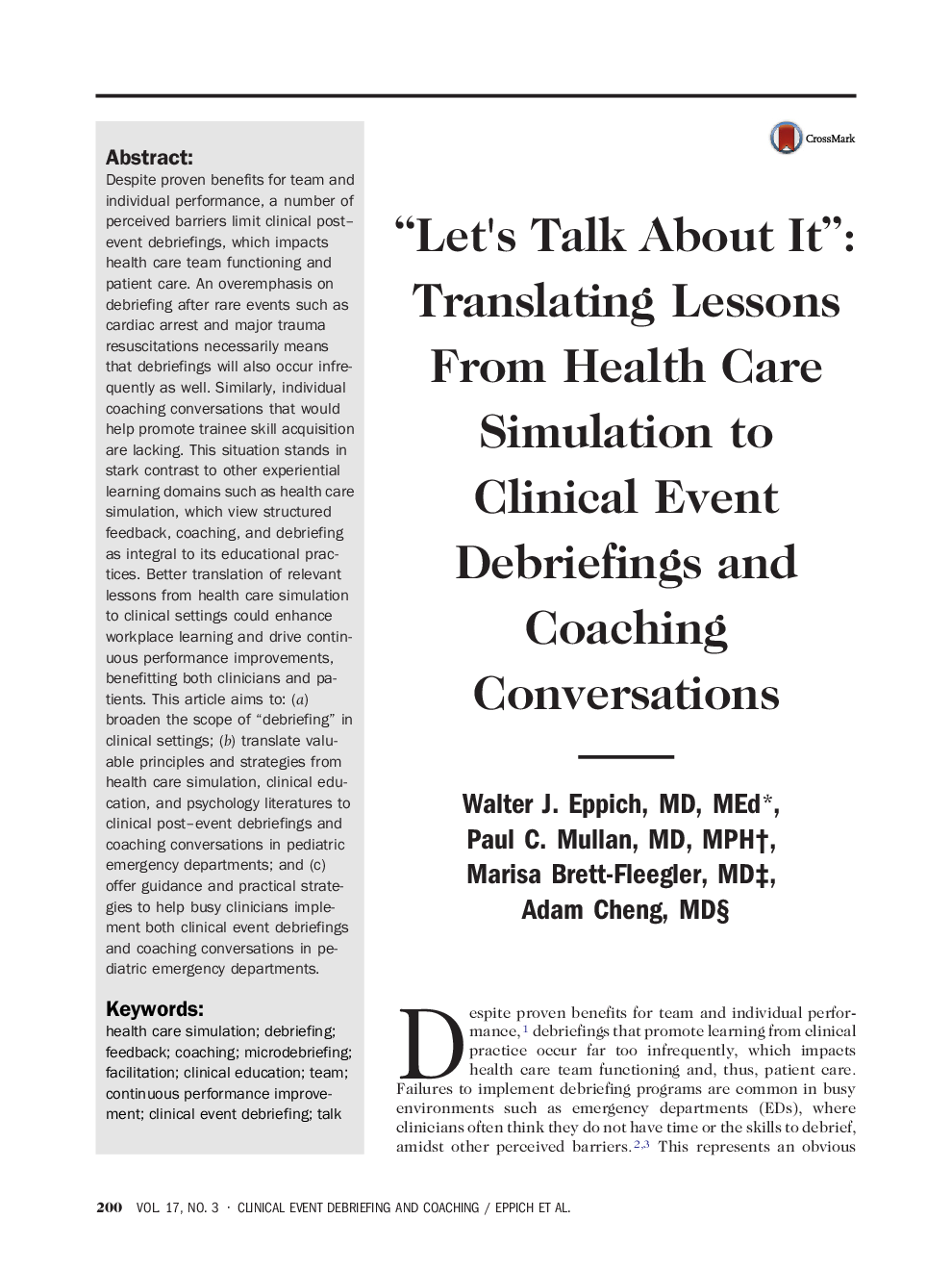| Article ID | Journal | Published Year | Pages | File Type |
|---|---|---|---|---|
| 3235710 | Clinical Pediatric Emergency Medicine | 2016 | 12 Pages |
Despite proven benefits for team and individual performance, a number of perceived barriers limit clinical post–event debriefings, which impacts health care team functioning and patient care. An overemphasis on debriefing after rare events such as cardiac arrest and major trauma resuscitations necessarily means that debriefings will also occur infrequently as well. Similarly, individual coaching conversations that would help promote trainee skill acquisition are lacking. This situation stands in stark contrast to other experiential learning domains such as health care simulation, which view structured feedback, coaching, and debriefing as integral to its educational practices. Better translation of relevant lessons from health care simulation to clinical settings could enhance workplace learning and drive continuous performance improvements, benefitting both clinicians and patients. This article aims to: (a) broaden the scope of “debriefing” in clinical settings; (b) translate valuable principles and strategies from health care simulation, clinical education, and psychology literatures to clinical post–event debriefings and coaching conversations in pediatric emergency departments; and (c) offer guidance and practical strategies to help busy clinicians implement both clinical event debriefings and coaching conversations in pediatric emergency departments.
